Windows 11 vs macOS Ventura - which is best for you?
The ultimate battle of operating systems
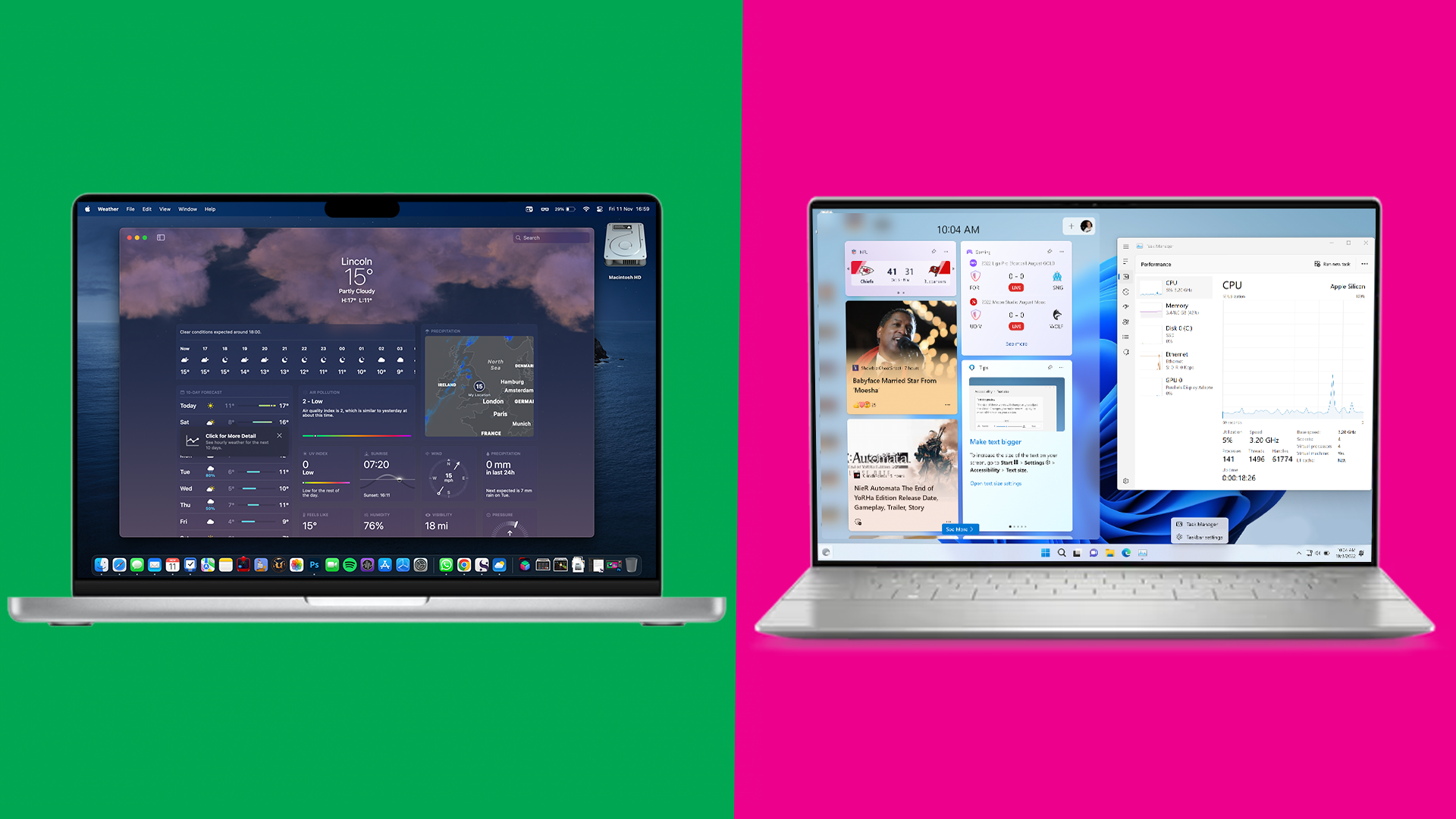
Sign up for breaking news, reviews, opinion, top tech deals, and more.
You are now subscribed
Your newsletter sign-up was successful
2022 has seen the arrival of two major updates to Windows 11 and macOS - a major update for Microsoft's operating system, and a whole new version of macOS in the Ventura update.
Long ago, you'd expect to see major updates every two years, and they would be paid, but now it's a free, yearly update that you can load up on your PC or Mac.
However, with Black Friday 2022 approaching, it's upgrading season for many, and you may not be sure as to which one to pick if you're looking to buy a new laptop or desktop PC. Thousands of people make the switch every year, going to macOS from Windows or vice versa when they buy a new computer.
With this in mind, we've looked at what's available in both, and how they could benefit you in different ways.
Windows 11 in 2022
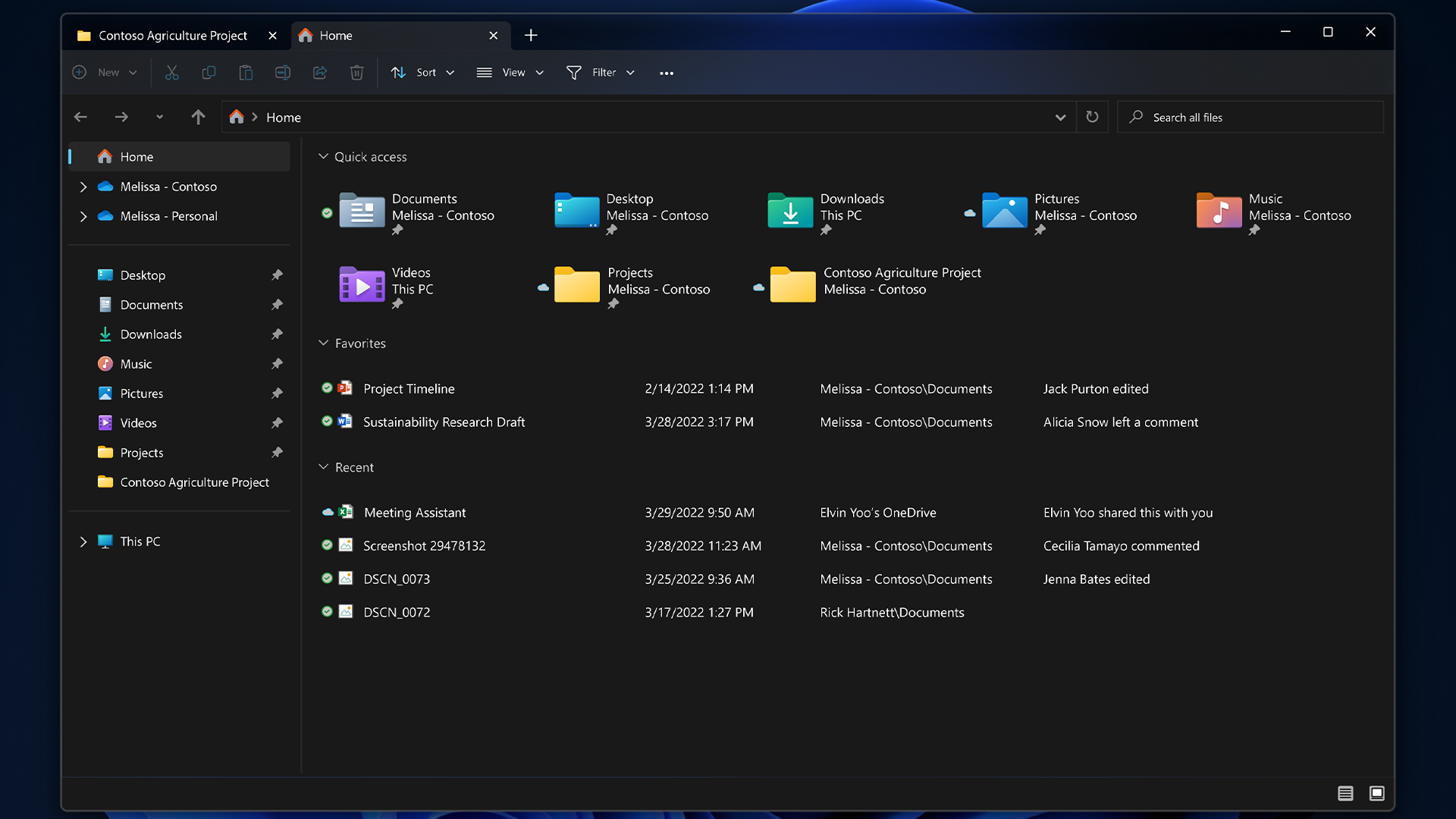
Since its debut in October 2021, Windows 11 has had a polarizing reception, mainly due to its redesigned Taskbar that brought apps and its start menu to the center (although you can return it to the left-hand side if you prefer the classic Windows layout) and some missing features compared to previous Windows releases.
However, with its first major update released in September 2022, there's been a bunch of improvements that have worked wonders to allay some of these criticisms.
Firstly, Windows 11 came with a refreshed design across the board, and this finally applies to the majority of Windows apps as well, such as Paint, Task Manager, and even the Media Player.
Sign up for breaking news, reviews, opinion, top tech deals, and more.
There are also tabs in File Explorer that can save you the confusion and hassle of managing files in multiple windows, and there's now an Xbox app built-in, so if you're subscribed to Xbox Game Pass, you can load up a game and start playing almost instantly.
Lastly, Windows 11 has a redesigned Microsoft Store, with previous versions having been mostly abandoned by the tech giant. In the new-and-improved store, there are plenty of apps from verified developers available to download - saving you a bunch of time spent searching the web for the right version of a program you need.
macOS Ventura in 2022
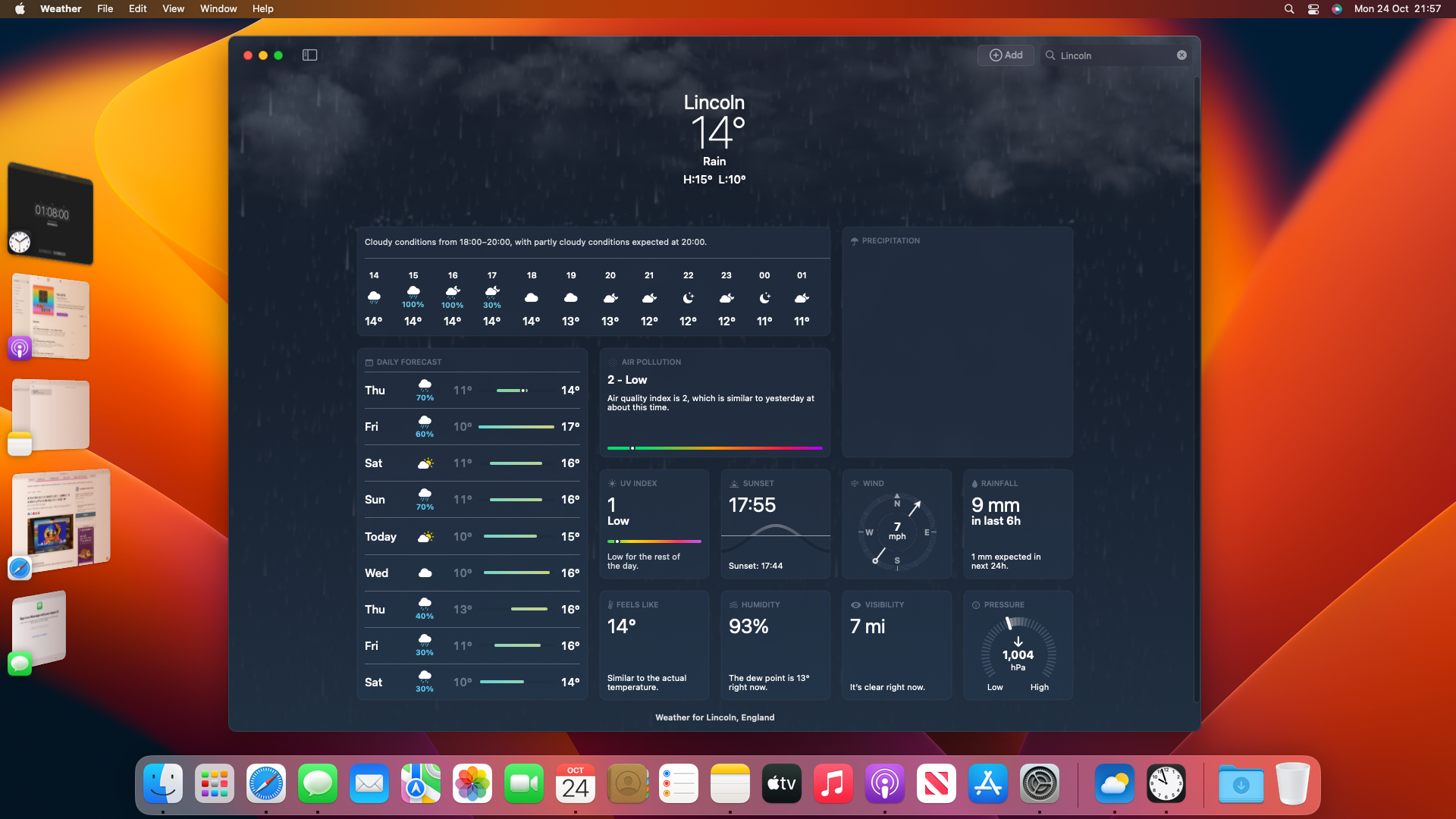
Apple's operating system first debuted way back in 2000, when it was first called Mac OS X, and every release would be named after a different type of big cat. It was the company's fresh start for what came before, and since then, it's seen moves to different processors and a change in its looks to better reflect Apple's monolithic phone platform iOS.
Yet the foundation is the same, largely unchanged. You access the Finder to manage your files and folders, and the Dock lets you launch your favorite and most used applications in an instant.
Functionally, these aren't dissimilar to the File Explorer and Start menu in every recent version of Windows, but macOS has always made a point of valuing aesthetics and user accessibility more of a priority compare to Microsoft's flagship OS. The new macOS Ventura update does nothing to change this.
Ventura wasn't a huge departure for Apple's operating system, but it did add some nifty new features. Chief among these is the Stage Manager tool, a feature ported over from iPadOS which lets you easily manage multiple open apps on your desktop.
As Apple moved to Apple Silicon in 2020, this means that you can use a bunch of iPhone and iPad apps on your Mac. This comes with the added benefit of carrying your progress between devices thanks to iCloud.
Design & Features
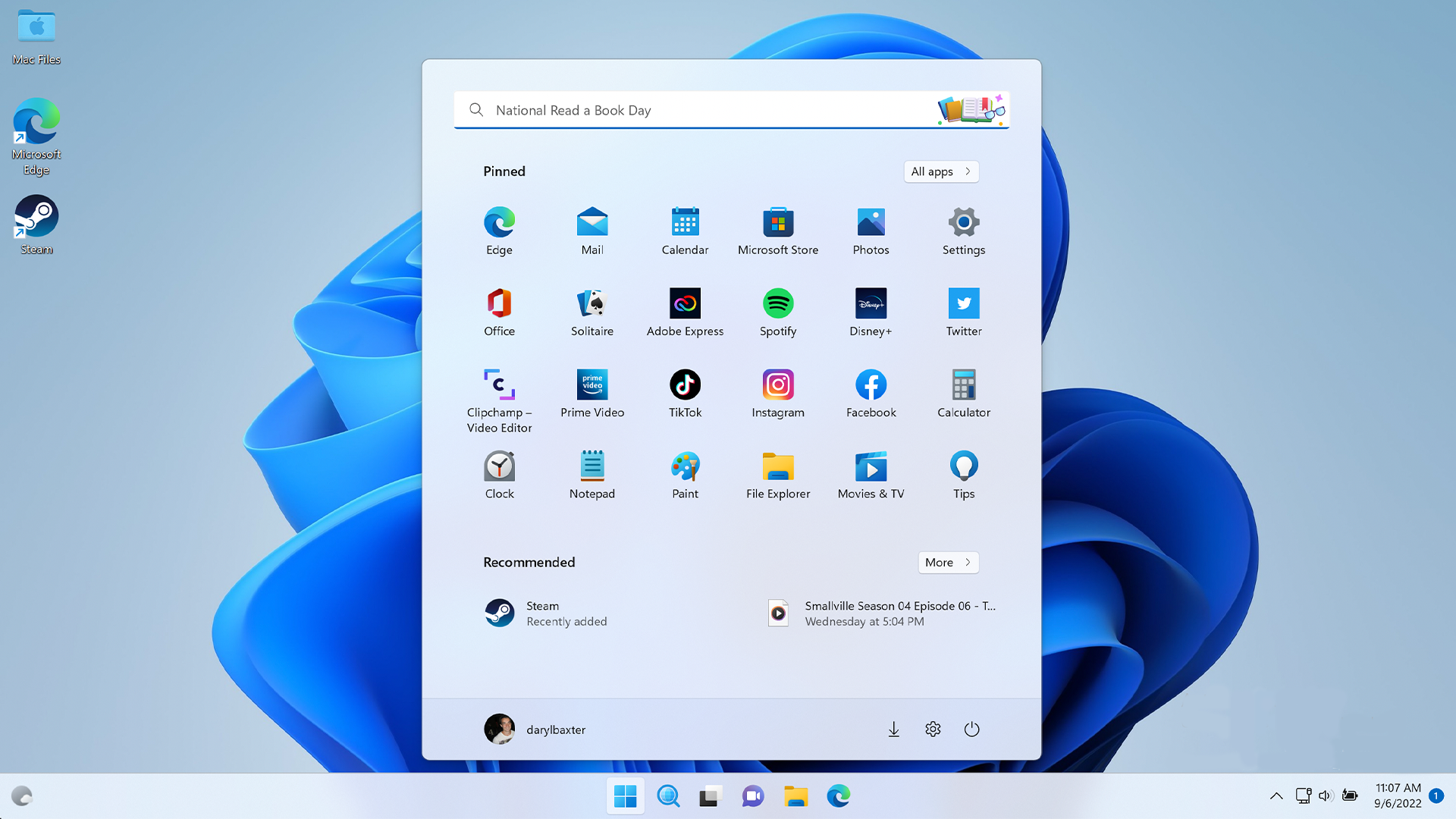
While macOS has seen plenty of piecemeal to its look and apps across the years, Microsoft decided to do one big major redesign with the release of Windows 11 in 2021. There was a new Taskbar, new ways to customize your theme, and apps were given a fresh coat of paint after years of abandonment.
For years, Windows seemed to be evolving from the theme that Windows XP presented back in 2001, with flat colors and curved buttons, and when Windows 10 arrived, it was mostly a reversal of what Windows 8 brought with its Metro theme.
In Windows 11, everything feels familiar yet new again, as if Microsoft blew away the cobwebs that had been lingering in parts of the operating system for years.
When it comes to macOS however, Apple has been using iOS as its guiding star since the mid-2010s - if you've owned an iPhone or an iPad in the last six years, you'll feel at home in macOS Ventura. Everything feels familiar yet bigger, and you have more power to customize the operating system to do exactly what you want it to do.
Compared to Windows, Apple likes to introduce at least three brand new features every year with the objective of improving the user experience and productivity, and Ventura kept this going with Stage Manager.
While it’s a confusing mess on iPadOS 16, in macOS it’s actually a useful tool for when you’ve got multiple windows open on your Mac desktop, easily arranging the clutter, similar to the 'stacks' feature for folders and files that first arrived in Mac OS X 10.5 Leopard.
Apps
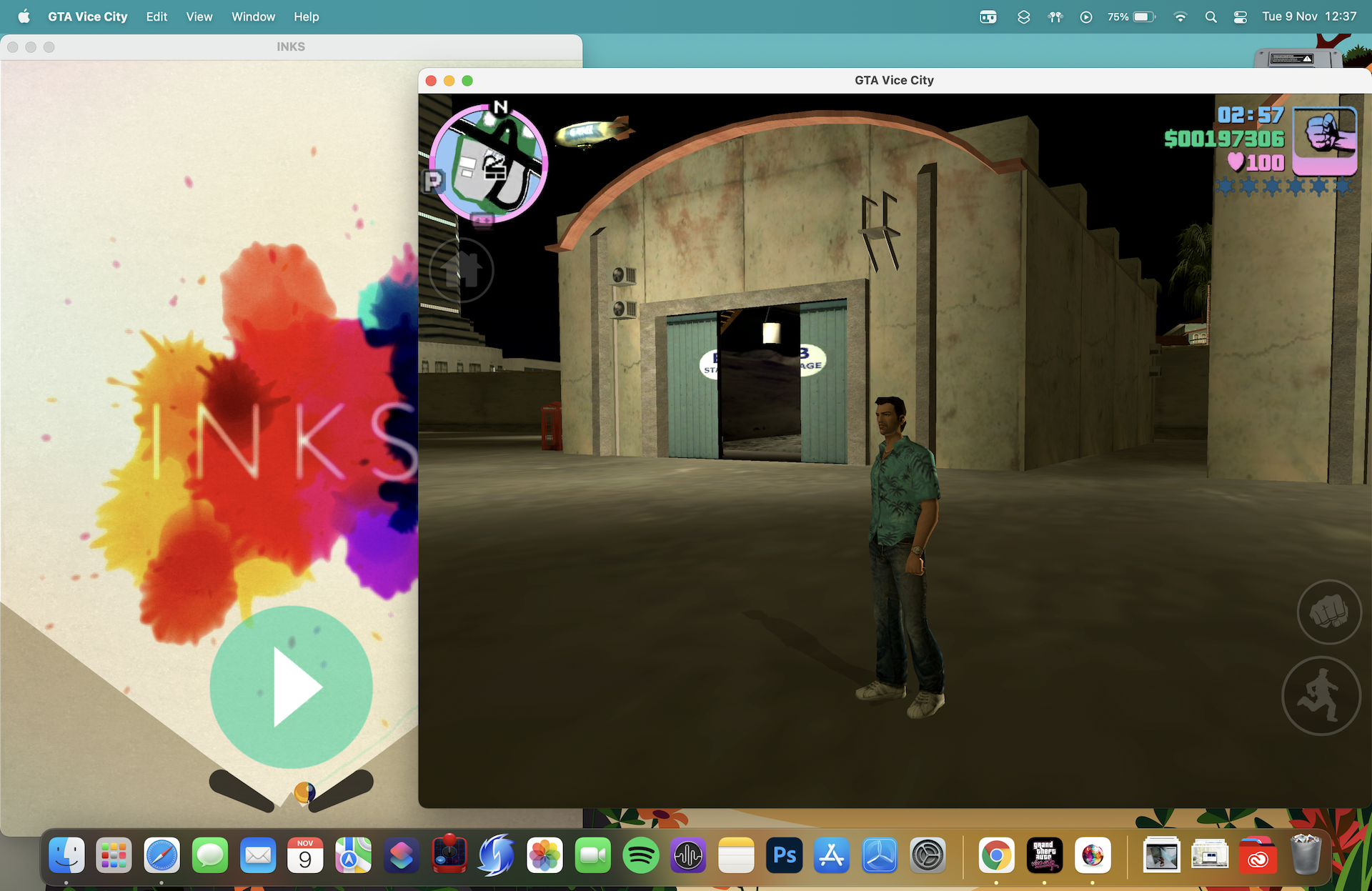
Hands down, if you want an operating system with a lot of apps, and ones that you can access on multiple devices, Apple is the way to go with macOS.
Since the debut of the App Store in 2008, Apple has created a refined ecosystem where you can freely purchase an app on your iPhone, and in most cases, you’ll be able to use this on another Apple device with no extra charge. If it’s a game, your progress is usually carried over thanks to iCloud.
With macOS 'Big Sur', released in 2020, the App Store arrived with support for Apple Silicon, such as the M1 MacBook Air and M1 Mac Mini, which meant that using these same apps on Mac hardware was now possible.
If you compare this to Windows, the interconnectedness is spotty at best. Granted, Android apps are available on the Microsoft Store now thanks to a deal with Amazon, but we’re already seeing the Store fill up with junk apps. While the redesign of the Store is welcome, curation seems to be something that Microsoft has forgotten to do.
In 2010, Microsoft CEO Satya Nadella said that he wanted Microsoft to be a service company, where you can access its apps on any device. While this is true for the most part, with multiplatform improvements to the Microsoft Office suite, Windows 11’s Store still needs work.
Accessibility
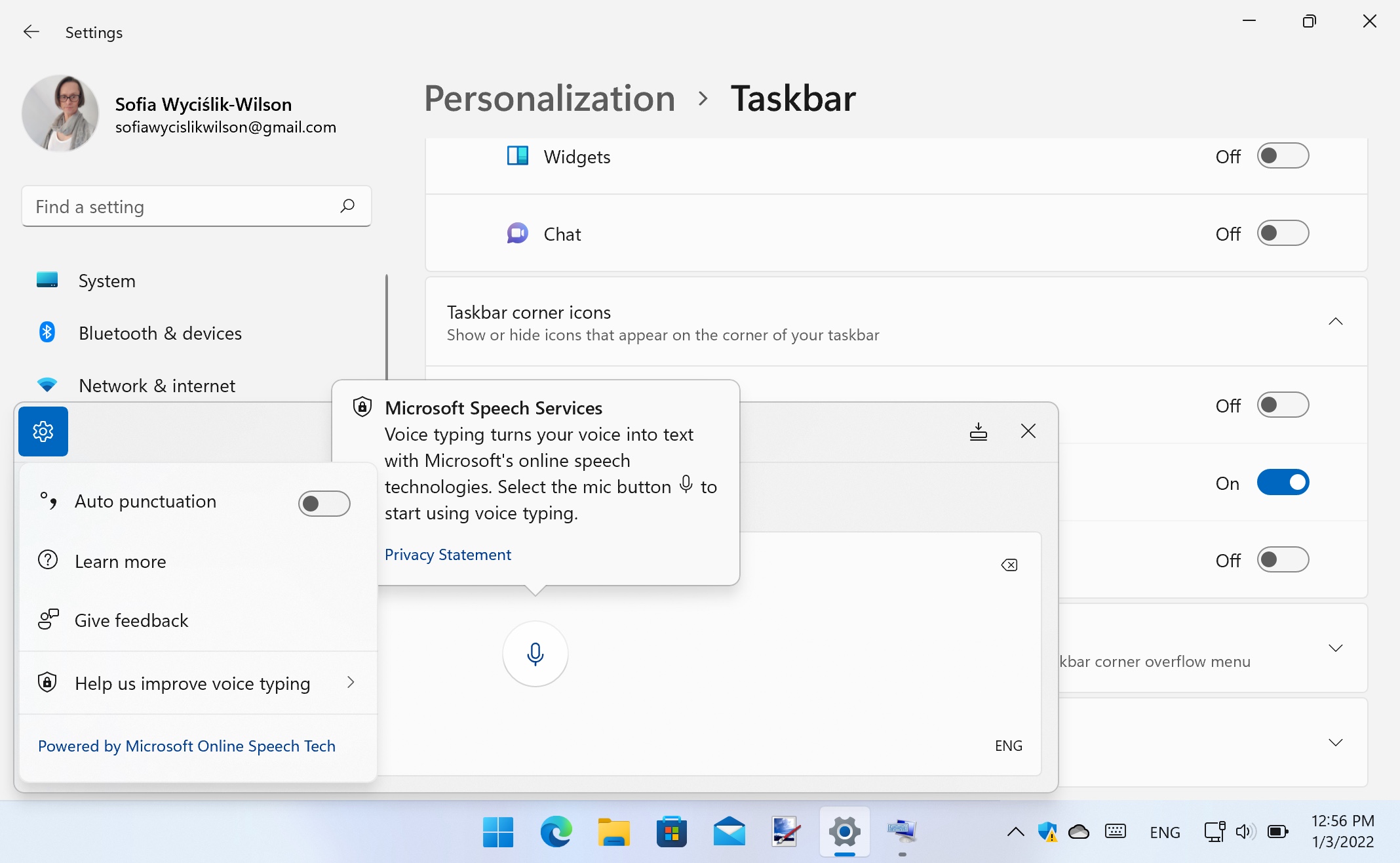
Apple has been leading the way in accessibility for years, but Microsoft has been impressively catching up at a rapid speed since Windows 10 debuted back in 2015.
With the 2022 creator update, a new feature called Voice Access enables you to control Windows 11 with a bunch of voice commands across the operating system.
In macOS Ventura, you can use Live Captions within a FaceTime call, alongside enabling background sounds, so you can play calming sounds such as rain or ocean waves to drown out any unwanted distractions regardless of where you are.
However, both Microsoft and Apple are clearly committed to the future of accessibility, so regardless of which operating system you choose, you can be safe in the knowledge that the category is going to help you use its features as well as anyone else.
Cost and Availability
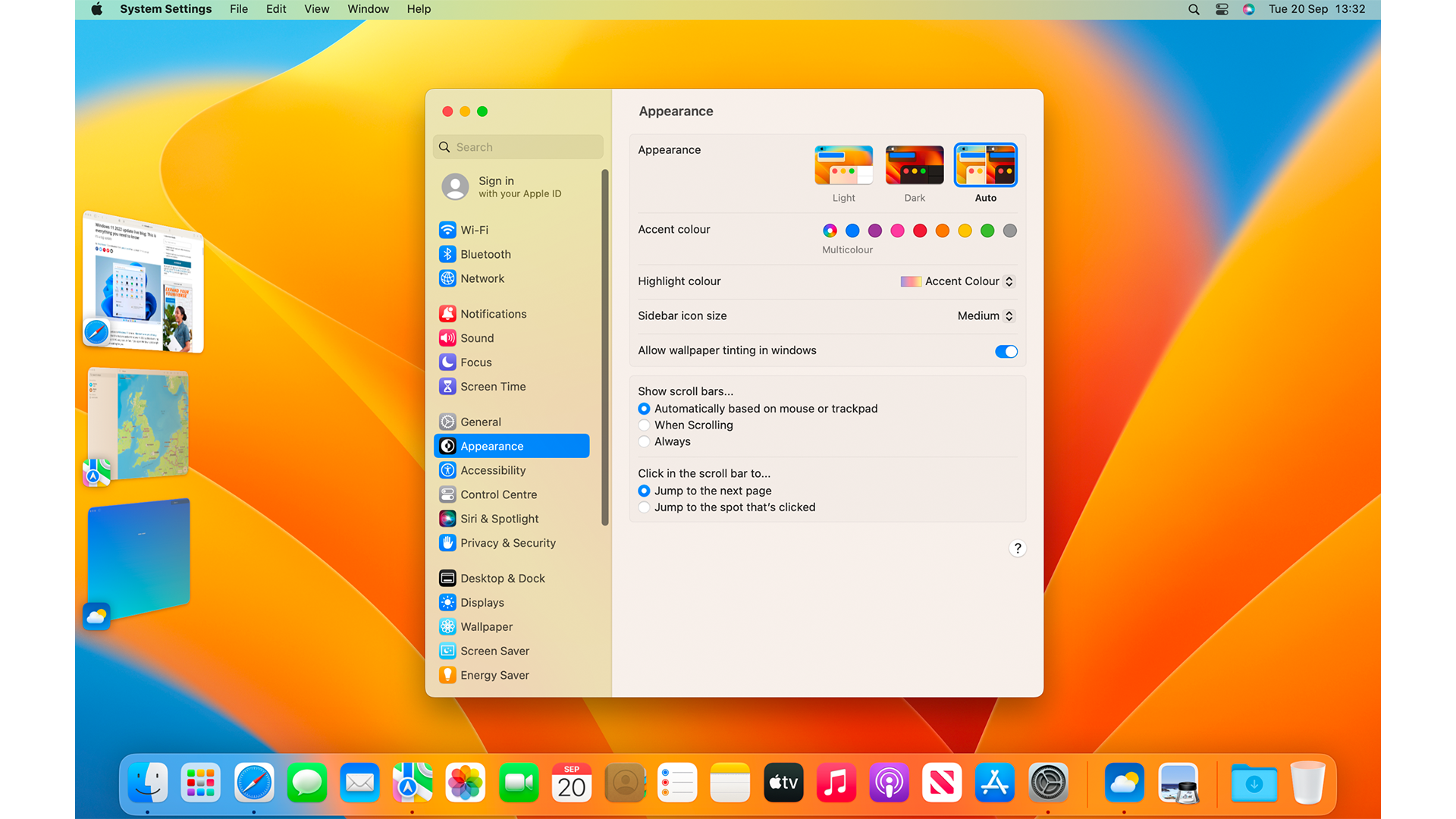
While both are free, technically the entrance to macOS is through its cheapest Mac, which is the Mac mini, while on Windows, you've got a lot of options to enter.
If you're on Windows 10, you'll get a free upgrade to Windows 11, but otherwise, it'll be $99.99 / £99.99 / AU$109.99.
The barrier to entry of the latest and greatest updates on Windows and Mac are much simpler than they used to be, where you would be paying a minimum of $99/ £99 / AU$99.
However, as long as you have a PC or Mac that's at least 4 years old, you shouldn't have a problem upgrading to Windows 11 or macOS Ventura, but be aware that some features may be unavailable to you.
So which one should you pick?

Think of it like walking into an IKEA. You're walking along the designated path, and for whatever reason, you're attracted to a kitchen - from the color of it, to the appliances and the way every drawer and every cabinet has been laid out.
You're walking around the island where you can see yourself sitting down and chatting with family while eating, and it feels like home - it feels comfortable.
So the question isn't strictly 'which one is better'. Each has its pros and cons, and your tastes will be different from someone who you walk by in the street this week for example. The question should be 'what feels more comfortable to use'.

Daryl is a freelance writer and author of two books—The Making of Tomb Raider and 50 Years of Boss Fights. A third book, the follow up to ‘Tomb Raider’, comes out in 2026. Having worked at TechRadar previously as a software writer from 2021 to 2023, Daryl understands how software can benefit users, as well as having an interest in how accessibility features can benefit others.
With over a decade of experience, his work has been featured in Tom’s Guide, SUPERJUMP, Pocket Tactics, Radio Times, The Escapist, and more.